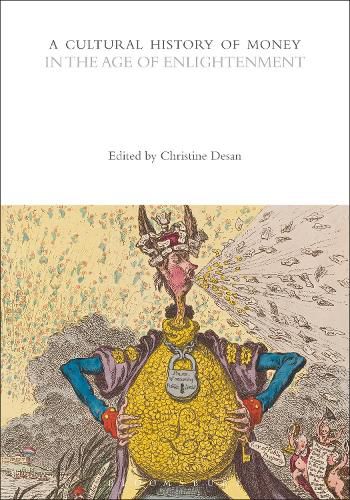Readings Newsletter
Become a Readings Member to make your shopping experience even easier.
Sign in or sign up for free!
You’re not far away from qualifying for FREE standard shipping within Australia
You’ve qualified for FREE standard shipping within Australia
The cart is loading…






The Enlightenment was a time of monetary turmoil and transformation in Europe. Change began with a riot of experimentation, including novel ideas about human agency and capacity to promote economic progress, efforts to reframe divinity in terms (like the providential) compatible with market exchange, new instruments of credit, and innovative institutions such as national banks and capital markets. Europeans, including the settler societies in North America, improvised frantically: people faced the task of everyday exchange in changing media; governments took up the project of creating currencies that supported their political power; artists and writers raced to represent new forms of wealth and interpret the issues they raised; and intellectuals struggled to conceptualize, and tame, patterns of monetary transformation. The result was a rich debate, still unsettled, about the sources of value, the morality of the market, and the very nature of money.
Drawing upon a wealth of visual and textual sources, A Cultural History of Money in the Age of Enlightenment presents essays that examine key cultural case studies of the period on the themes of technologies, ideas, ritual and religion, the everyday, art and representation, interpretation, and the issues of the age.
$9.00 standard shipping within Australia
FREE standard shipping within Australia for orders over $100.00
Express & International shipping calculated at checkout
The Enlightenment was a time of monetary turmoil and transformation in Europe. Change began with a riot of experimentation, including novel ideas about human agency and capacity to promote economic progress, efforts to reframe divinity in terms (like the providential) compatible with market exchange, new instruments of credit, and innovative institutions such as national banks and capital markets. Europeans, including the settler societies in North America, improvised frantically: people faced the task of everyday exchange in changing media; governments took up the project of creating currencies that supported their political power; artists and writers raced to represent new forms of wealth and interpret the issues they raised; and intellectuals struggled to conceptualize, and tame, patterns of monetary transformation. The result was a rich debate, still unsettled, about the sources of value, the morality of the market, and the very nature of money.
Drawing upon a wealth of visual and textual sources, A Cultural History of Money in the Age of Enlightenment presents essays that examine key cultural case studies of the period on the themes of technologies, ideas, ritual and religion, the everyday, art and representation, interpretation, and the issues of the age.